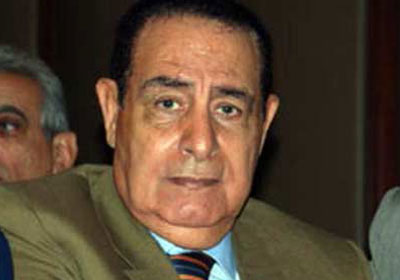BRUSSELS: EU ministers Tuesday debate Egypt’s request to freeze the assets of leading members of president Hosni Mubarak’s regime while considering proposals to increase aid and investment in the Arab world.
Finance ministers winding up two days of talks on the rumbling eurozone crisis have been directed by their governments to prioritise an accord on how to handle requests for action against the assets of Mubarak henchmen — but not against the deposed president himself.
Britain, Germany and France have each been asked by Egypt to freeze the assets of former regime officials.
An EU diplomat, who asked not to be named, said a list of "six or seven" Egyptians, "but definitely not including Mubarak," were being targeted in Cairo.
The EU would look at using a United Nations convention against corruption as grounds for freezing accounts and seizing assets, he said.
There was no word on the Egyptian requests from the ministers as they went into talks. A press conference is expected at around 1300 GMT.
A French foreign ministry spokesman on Monday confirmed that the requests from Cairo "concern neither former president Hosni Mubarak nor members of his family."
In London, British foreign minister William Hague on Monday pointed to the similar course of action taken with Tunisia, whose president Zine El Abidine Ben Ali was toppled last month in a popular revolt which lit the fuse for the mass protests that deposed Mubarak.
"We will of course cooperate with this request, working with EU and international partners as we have done in the case of Tunisia," Hague told British lawmakers in London.
Hague added: "If there is any evidence of illegality or misuse of state assets we will take firm and prompt action."
Mubarak stepped down last Friday after 30 years of rule but remains in Egypt, holed up in the Red Sea resort of Sharm el-Sheikh.
French Finance Minister Christine Lagarde said Tuesday’s discussion will also cover "the situation in all these countries, Tunisia and Egypt in particular, to examine the financial and economic aspects".
She said the EU needed to examine "how to join together to provide support for the democracy movement taking root in these countries."
The ministers would look both at investment support, with the help of the European Investment Bank, and development aid, she added.
Britain’s government has been under growing pressure to freeze funds belonging to Mubarak and his entourage amid reports they stashed millions of pounds in accounts in Britain and elsewhere.
Business Secretary Vince Cable warned last weekend that the government would act against any British bank involved in helping Mubarak improperly move funds but said the British government would not act alone.
"I wasn’t aware that he (Mubarak) had enormous assets here but there clearly needs to be concerted international action on this," Cable told the BBC.
Hague also said that Egyptian Prime Minister Ahmed Shafiq had told him opposition figures would be included in a reshuffled cabinet within the next week, following Mubarak’s dramatic departure.
"We would also like to see a clear timetable for free and fair parliamentary and presidential elections and a genuinely inclusive dialogue about the country’s future," Hague added.

